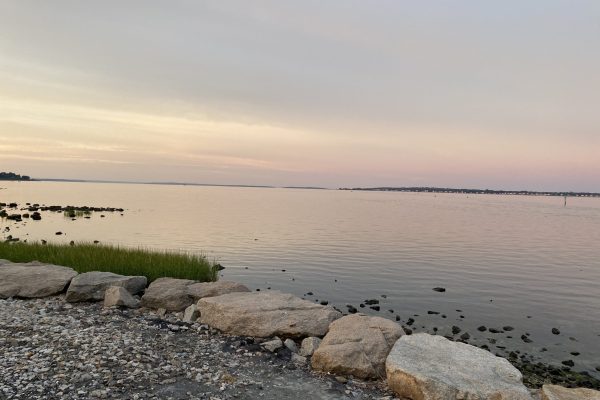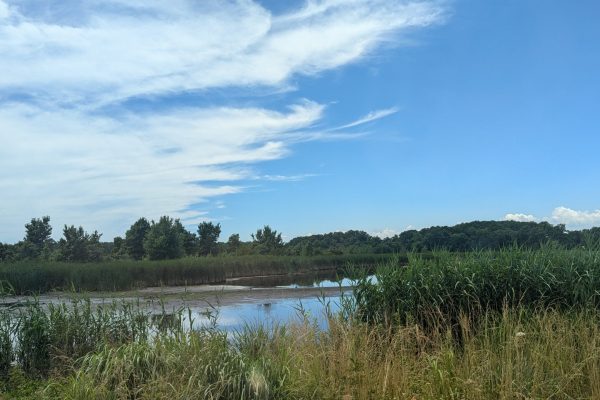“See, the smell of my son is as the smell of a field that Hashem has blessed” – said the unslaughtered one
A parable: before the king would arrive at a city, the people would go out to meet him and receive him in the field, and at that time, anyone who wanted had permission to approach the king… That’s how things are in the month of Elul (before Rosh Hashanah). – Shneur Zalman of Liady, the Alter Rebbe
I.
The King is in the field – המלך בשדה Hamelekh basadeh – that’s what they say.
Mamesh ממש in the field –
In the ashes, mixing further in the soil with every rain,
In bone fragments too small for the eyes of Zaka,
In blood making soil sticky with killed life.
“It was while they were in the field” – there Cain struck Abel;
The field, where Nimrod the hunter slaughtered animal after animal,
species after species,
Violence founding his kingship;
The field, where Esau cut Nimrod down to loot his God-sewn cloak.
II.
Last year those poets were saying, See, the trees of the field in Be’eri:
weeping over blood-sown soil, too sickened to rejoice.
They said, a tree no longer wanted to be a tree.
But trees know nothing of that violence, human-on-human.
What they do know: what rises against them, the axe and the fire,
the clearcutting that is its own green holocaust.
Maybe a tree could know this much: the human corpse buried ’neath its roots,
could know it by the nutrients effluent from the mulching,
all the copse weaving roots together, tasting together the nostalgic concoction,
remembering Abel’s body, buried with Adam’s tears, Eve’s drenching sobs–
after Cain had flown.
III.
Those rabbis taught: Abel’s blood stayed stuck to the surface of the trees and rocks –
so it’s written, “your brother’s bloods”: bloods – blood thrown here, blood there,
on this exposed root, that rock,
this moss, that trunk.
The soil at first refusing to swallow that first bloodletting.
But the soil has long resigned itself to that draught.
IV.
Nature is divinity, say mystic and Rebbe.
The King is in the field – the King is the field!
The trees already knew it.
Some day we will know this by feel,
not by way of a teaching.
Then will it be known, how
every spilled blood drop burns the field.
Then how many calves’ necks will be wanted, to break, to purge
the bloodguilt, all the dam naki דם נקי, from this land?
The King is the field –
and every murder a deicide, every own blow a God-wounding,
bloods, flowing, by family, by clan, child and soldier,
gush fully from God’s wounds.
V.
Our Father Our King, our Mother, our Parent, our Nurturer, our Ruler, our Savior –
How small you make yourself, small enough to dwell in each grain of soil,
each mycelial thread, each drop of blood soaking into the minutest volume of earth.
Show us grace, show us you are listening, that you ever listened,
though we have no thing to give back, nothing to show our merit.
Only one thing have we shown: we will destroy this world if you let it.
Maybe you have no choice but;
it says, “melekh l’sadeh ne’evad” מלך לשדה נעבד – a king is subject to the soil,
The King is servant, in thrall to the field –
so if we enslave earth, we enslaved you.
Rachmana lits’lan רחמנא לצלן, God help us; the King in the field, is the field;
The King, the field, the tree, the blood, the bone.
The soil – drinks.
Notes:
“the smell of a field that Hashem has blessed” – Isaac uses these words to describe Jacob, who is wearing Esau’s clothing (Gen 27:27)
“unslaughtered” – Isaac, whom Abraham bound up in order to sacrifice; Isaac is also described as going out to the field to meditate לשוח בשדה (Gen 24:63)
“Shneur Zalman” – in Liqutey Torah, Re’eh 32
“The King/Hamelekh is in the field/basadeh” ready to meet his subjects without the formality of the royal court – a metaphor for
God’s closeness in the month before Rosh Hashanah
“Mamesh” – “really”, sometimes, “astonishingly” (Yiddish)
“Zaka” – volunteer Israeli organization that scours any death scene for body parts so that they can be properly buried
“It was while they were in the field” – Gen 4:8
“Nimrod” – Gen 10:8-9; according to midrash, Nimrod inherited the cloak of skin God made for Adam in the Garden of Eden, so the animals all trusted him (Genesis Rabbah 63:13)
“Esau” – midrash says that Esau killed Nimrod to get the cloak – he used it to hunted food for Isaac (Genesis Rabbah65:16)
“trees of the field” – what the Torah calls agricultural trees
“trees…rejoicing” – Psalm 96:12, “the field will exult and all that is in him; then all the trees of the forest will sing out”
“no longer wanted to be a tree” – a line from “One tree in Kibbutz Be’eri” by Orian Chaplin (no criticism of the poem is intended)
“brother’s bloods” – Gen 4:9; Genesis Rabbah 22:9 explains why the verse says “bloods” rather than “blood”
“Nature is divinity” – as the Lubavitcher rebbe wrote, in “the perfecting/shleymut שלימות of Nature, it will be recognized openly that Nature is divinity” (Torat Menachem v.2, p.100)
“how many calves’ necks” – any time a murder victim was found in the field (basadeh בשדה) between cities, the nearest city had to perform a ritual, breaking the neck of a calf, “to put away the innocent blood” (Deut 21:1-9)
“Our Father Our King” – Avinu Malkeinu אבינו מלכינו, the very well-known liturgical formula for the High Holidays, which continues: “show us grace and answer us, for we have no deeds in us… and save us”
“melekh l’sadeh ne’evad” – Eccles. 5:9
“Rachmana lits’lan” – lit. “May the Merciful/ Womb-ful One rescue us” (Aramaic)










